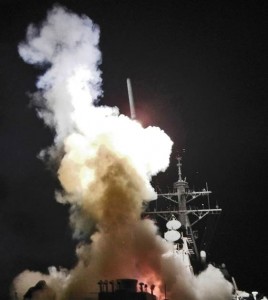Russia kicks out USAID for “meddling in Russian politics”
September 20, 2012
By LUIS MIRANDA | THE REAL AGENDA | SEPTEMBER 20, 2012

USAID allegedly helps monitor elections in remote areas of Russia.
The Agency for International Development (USAID) will stop work in Russia as a result of a government ban on the American organization due to what the Russian government says it is the continuous meddling of USAID in its political scenario. The move will impact Russian Non-Governmental Organizations (NGOs) which depend on USAID’s funds to carry out their programs.
USAID has until Oct. 1 to close its offices in Russia, where it’s been working since 1992, spending some $ 2,600 million. Projects funded by USAID range, according to the organization, from combating tuberculosis and AIDS to educating children with disabilities as well as monitoring and controlling of elections in a large geographical area.
“The nature of work of the agency representatives in Russia in many cases did not meet the stated goals of development and humanitarian bilateral cooperation”, said on Wednesday Russian foreign ministry spokesman, Alexander Lukashevich. Lukashevich accused USAID of “attempting to influence by allocating grants in the political process, including elections at different levels and institutions of civil society.” The “activity” of the agency in “various Russian regions, especially in the North Caucasus, raised serious questions” about which “we warned repeatedly our American colleagues,” he said.
USAID works in numerous administrative units of the Russian Caucasus, from Chechnya to Ingushetia through Karachai-Cherkessia, North Ossetia, Kabardino-Balkaria, Krasnodar and Stavropol. In these provinces there are projects related to electoral monitoring by Golos. The director of this NGO, Lilya Shibanova, called the decision a”bad sign” and a “heavy blow” to her organization. She said the immediate step to kick USAID out puts at risk the monitoring plan for the regional elections that will be held on October 14 in various Russian provinces.
Russia is now part of the countries that hold the “new donor” status, while rejecting the “recipient” label. This change turns the country away from receiving aid from all international organizations,” said Lukashevich. “The Russian civil society has grown and does not need” external aid, “said the spokesman for the foreign ministry, who spoke about the possibility of cooperating with the U.S. in third countries. With the expulsion of USAID, Russia makes it even clearer that the Kremlin leadership is aiming at restricting the activities of the opposition, which intensified with the return of Vladimir Putin to the presidency.
In November, a new law will become effective which will require that a person registers as a “foreign agent” when working for an NGO whose political activities receive international funding. However, the Russian Ministry of Justice has had to seek help from academic experts to develop criteria on political activities that require participants to identify themselves as “foreign agents”.
From the perspective of the Kremlin, the U.S. and the West are trying to destabilize Russia and encourage protests against their leaders. However, this is not the only reason why the Russian government kicked out USAID. Some media outlets are now reporting on this move as a sign of the problematic relations between the U.S. and Russia. The measure also may be linked to “pride” from the part of the Russian government. The move to cut ties with American, or in general foreign organizations is not new in Russia. The government sought to end this kind of relationships and to change the way the country cooperates with foreign organizations, especially those of Western origin.
Another NGO that will be affected given the Russian decision to send USAID home, is “Memorial”, an organization that occupies its time and funds to maintain the historical memory of Stalinism. “It’s unfortunate,” said Yelena Zhemkova, a member of Memorial’s board. “We may have to reduce some of our programs and find money elsewhere, but we will move forward,” she said. “Those who really suffer are the programs to combat tuberculosis or helping handicapped,” he said. Projects funded by USAID at “Memorial” are “a ramp to enable disabled persons to travel on our premises and access the library.
The Real Agenda encourages the sharing of its original content ONLY through the use of the tools provided at the bottom of every article. Please DON’T copy articles from The Real Agenda and redistribute by email or post to the web, unless you request and receive written permission to do so. If permission is granted, you must publish the article EXACTLY as it appears on The Real Agenda.

